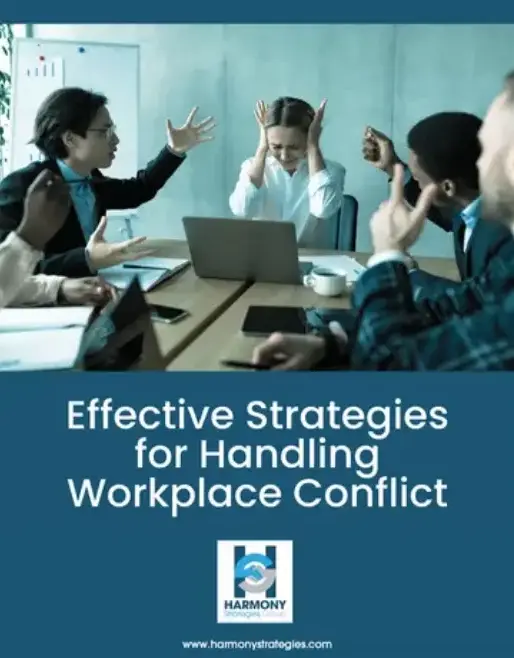You’ve probably heard of Executive Coaching but aren’t clear of the advantages. I’d like to help clarify, based on the many times I’ve helped leaders improve their skills and radically improve their team’s dynamics.: Today’s leadership requires more than just technical expertise—it demands emotional intelligence, clear communication, and a deep understanding of how to foster trust and accountability. Executive coaching has emerged as one of the most effective ways I continue to support leaders in honing these vital skills and navigating workplace challenges with greater clarity and confidence.
At Harmony Strategies Group, we offer Executive Coaching as a core service to help organizations strengthen their leadership from the inside out.
What Is Executive Coaching?
Executive coaching is a confidential, individualized process that supports leaders grow self-awareness, strategic decision-making, and effective communication and team dynamics. Unlike performance reviews or skills-based training, coaching offers a space for deep reflection and individualized skills-building. Each leaders will have his or her own unique talents and deficits, and executive coaching taps into the strengths, identifies blind spots, and aligns actions with values and strategic goals.
When Should a Leader Get an Executive Coach?
Whether a leader is navigating a period of change, experiencing tension on their team, or simply seeking to refine their leadership style, executive coaching provides structured support for personal and professional development.
Why Executive Coaching Matters
Executives are often juggling competing priorities, managing diverse teams, and making decisions under pressure. Even the most seasoned leaders benefit from a trusted thought partner—someone who will offer honest feedback, ask tough questions, and help think through challenges in a safe, supportive environment.
Some of the key benefits of executive coaching include:
- Greater self-awareness and emotional intelligence
- Improved communication and conflict resolution skills
- Increased team trust and collaboration
- Better alignment between leadership actions and organizational values
Coaching empowers leaders to not just react, but respond—with intention, vision, and empathy.
Executive Coaching vs. Conflict Coaching
It’s important to distinguish between executive coaching and conflict coaching. While both are deeply rooted in communication and self-awareness, conflict coaching focuses specifically on helping individuals navigate a specific interpersonal challenge, difficult conversation, or problem at hand.
Executive coaching, on the other hand, takes a broader view. It’s about developing overall leadership capacity, enhancing poise and influence, and supporting long-term professional growth.
There is often overlap between these two approaches—especially in high-stakes roles where leadership and conflict intersect. Learn more about conflict coaching on our website.
Executive Coaching in Action
I’ve seen firsthand how powerful coaching can be. One executive client, leading a fast-growing organization, was facing significant tension between departments and a rise in turnover. Through coaching, he realized that his communication style in meetings—while efficient—was unintentionally creating distance and confusion. With support, he considered a different approach, held space for more dialogue, and began establishing a more collaborative approach to meetings, so that different team members could chime in and affect positive change. The result? Improved morale, more effective meetings, and stronger alignment around goals.
This is the power of executive coaching—it unlocks clarity, strengthens relationships, and leads to lasting change.
Building Healthy Leadership from the Top
At Harmony Strategies, we know that leaders set the tone for the entire organization. When they’re supported, self-aware, and empowered to lead authentically, the ripple effects are felt across teams and departments.
For HR professionals and senior leaders looking to build a more resilient workplace culture, we recommend pairing executive coaching with broader conflict engagement strategies. For example, our Organizational Ombuds offering complements coaching by identifying systemic concerns and surfacing blind spots that might otherwise go unnoticed.
You can also explore interactive learning on relevant topics like Poise, Intentionality, and Influence to develop and hone vital executive skills and tools for maximal workplace cooperation and productivity.
Ready to Learn More?
At Harmony Strategies Group, our executive coaches bring years of experience across industries and leadership levels. We tailor our coaching approach to each individual, ensuring alignment with organizational goals and personal growth.
Click here to explore Coaching options or reach out directly to [email protected] to schedule a consultation.

